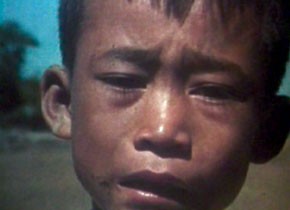Heynowski & Scheumann
January 30 to February 6, 2013
Walter Heynowski, born in 1927, and Gerhard Scheumann (1930-98) are among the best-known and most controversial documentary filmmakers of the GDR: their work was seen worldwide and received recognition beyond all political boundaries. Even if one stood in opposition to the opinions articulated in their films, and even if their artistic strategies provoked intense debate, no one doubted the virtuosity of these two acknowledged Vertovians. In their time, only Santiago Álvarez achieved a similar cinema of “condensed reality” and formal brilliance.
Heynowski and Scheumann – the "H&S Studio" – were an anomaly within the GDR media world: a (half-)independent production entity with permanent staff, simultaneously privileged and exposed. This included the fact that Heynowski and Scheumann, along with many of their staff members, were able to travel relatively freely. This was essential to their work, because many of their films were foreign policy statements: they attacked the criminal methods of the U.S. Army and the CIA in Vietnam (Remington Cal. 12) and revealed the long-term consequences of that war (Amok), they uncovered the cruelty of West German mercenaries in post-colonial Africa (Der lachende Mann), celebrated the resistance of the Chilean population against the military junta (Psalm 18) and documented the genocide committed by the Khmer Rouge in pursuit of the very ideal to which the filmmakers also subscribed: communism (Die Angkar). For Heynowski and Scheumann, filmmaking meant: fighting for and against ideas with words, images, and sounds. They were aware of the failures and problems of the GDR and tried – often polemically – to fix them; at the same time they placed their hopes in the country. The elimination of that state was tantamount to the end of their film work.
The Film Museum presents a selection of works from 1965 to 1984, organized in four thematic chapters: "Federal Germany Across the Sea," "Vietnam," "Chile" and "Kampuchea." Ralf Schenk, director of the DEFA Foundation (Berlin), will introduce the first two programs.
Related materials
